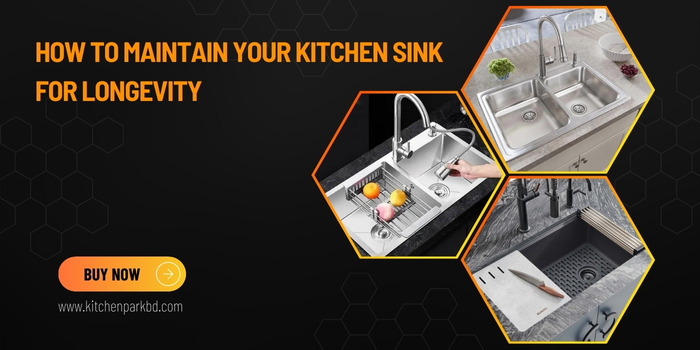Details of How to Properly Your Kitchen Sink for Longevity
Kitchen sink is one of the most hardworking fixtures in your home. From washing dishes to cleaning vegetables, it sees a lot of action on a daily basis. However, despite its durability, neglecting its maintenance can lead to issues such as clogs, stains, and even structural damage over time. To ensure your kitchen sink lasts for years to come, it’s important to implement a regular maintenance routine. In this guide, we’ll explore some simple yet effective tips to help you maintain your kitchen sink for longevity.
Keep it Clean: Regular cleaning is key to maintaining the appearance and functionality of your kitchen sink. After each use, make it a habit to rinse the sink thoroughly to remove any food particles or residue. Additionally, a weekly deep clean using a mild detergent or baking soda can help prevent the buildup of grime and stains. Avoid using abrasive cleaners or scouring pads, as these can scratch the surface of your sink, especially if it’s made of materials like stainless steel or porcelain.
Watch What You Put Down the Drain: One of the most common causes of kitchen sink problems is clogging. To prevent clogs from occurring, be mindful of what you dispose of down the drain. Avoid pouring grease, oil, or coffee grounds down the sink, as these substances can solidify and block the pipes. Similarly, use a sink strainer to catch food scraps and other debris before they have a chance to accumulate and cause a blockage.
Address Minor Issues Promptly: If you notice any minor issues such as a slow-draining sink or a dripping faucet, don’t ignore them. These seemingly insignificant problems can escalate into larger issues if left untreated. Invest in a good quality drain cleaner to tackle minor clogs, and tighten loose fittings or replace worn-out washers to fix leaks. By addressing these issues promptly, you can prevent them from causing further damage to your sink.
Protect the Surface: Depending on the material of your kitchen sink, it may be susceptible to scratches, stains, or heat damage. To protect the surface, avoid placing hot pans or heavy objects directly onto the sink. Use a cutting board when chopping fruits and vegetables to prevent scratches, and rinse acidic substances like vinegar or citrus juice promptly to avoid staining. For extra protection, consider applying a sink protector or mat to cushion the bottom of the sink and prevent scratches.
Schedule Professional Maintenance: While regular upkeep can go a long way in preserving your kitchen sink, there are some tasks best left to the professionals. Consider scheduling an annual inspection with a plumber or a sink specialist to check for any signs of wear and tear, as well as to perform routine maintenance tasks such as resealing the sink or replacing worn-out parts. This proactive approach can help identify potential problems early on and prolong the lifespan of your kitchen sink.
Conclusion of How to Maintain Your Kitchen Sink for Longevity:
Your kitchen sink is a vital component of your home, and by following these simple maintenance tips, you can ensure it remains in top condition for years to come. From keeping it clean to addressing minor issues promptly, taking care of your sink doesn’t require much time or effort but can save you from costly repairs down the line. By incorporating these practices into your cleaning routine, you can enjoy a beautiful and functional kitchen sink for many years of cooking and cleaning ahead.

